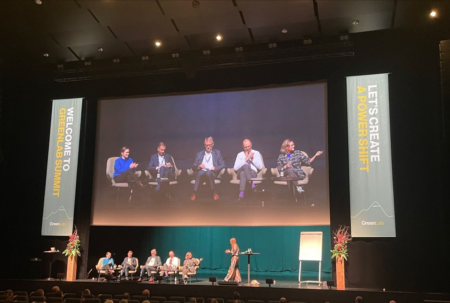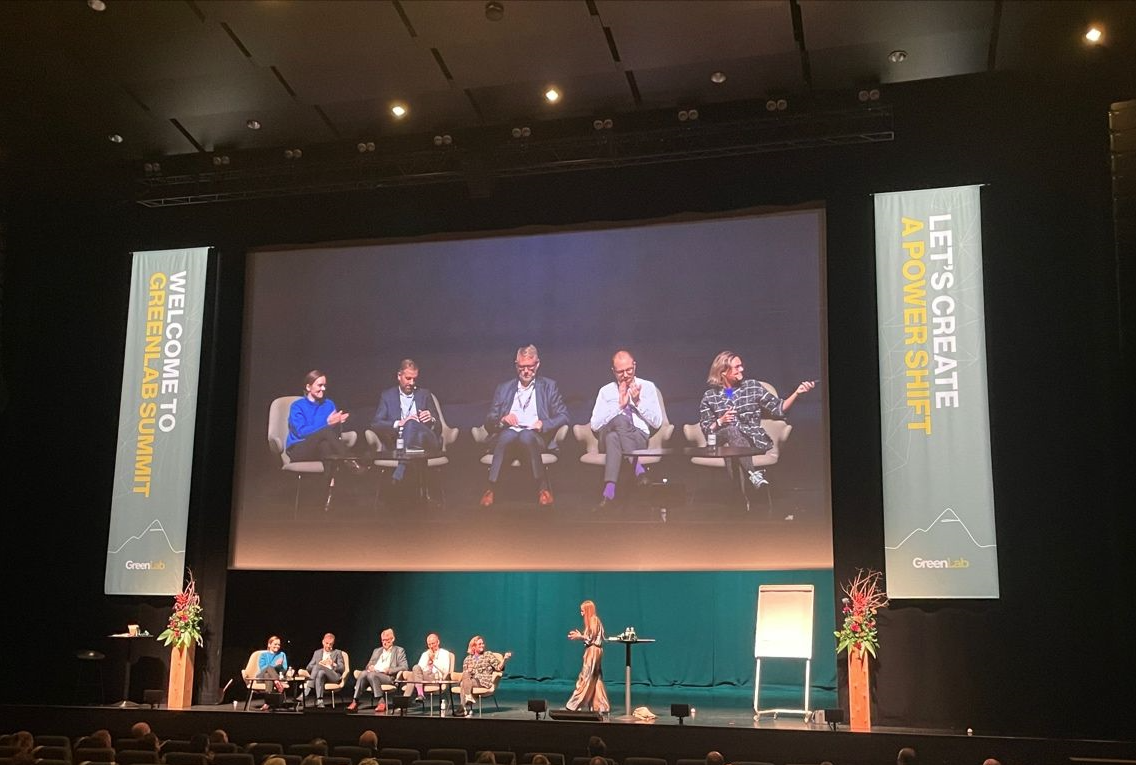Debrief GreenLab Summit 2023

News
Smart energy systems


The conference focused on how to solve a series of complex challenges, and the message is clear: We need to move from sector integration to a complete re-industrialisation to succeed. Skive’s GreenLab model is a leading example of how to do it successfully.

“The green transition started with a focus on production capacity and is now in a phase that focuses on sector integration. To succeed, we must move into the third phase, the re-industrialisation phase, where there are flexible energy markets, 100% electrified land-based transportation, and lots of hybrid parks with co-location of renewable energy production and industry”. This was a key point made at yesterday’s GreenLab Summit by Norlys CEO, Niels Duedal, and it serves as a headline for many of the keynotes and debates that took place during the day.
Don’t wait for perfect solutions
To succeed with re-industrialisation, there are a list of mistakes that we need to avoid. One of the central themes that emerged during the GreenLab Summit was that we cannot wait for perfect solutions before we act. We must do something now with the tools and technologies available to us. As Jacob Nørgaard, CEO of Stiesdal put it, “If your house is on fire, don’t wait for something better than water to be invented. Act now!”
From linear to circular systems
The summit also highlighted that circular systems are a challenging but vital part of a sustainable future. In the energy system of the future, nothing can go to waste, and it is crucial that we use the methods already invented to store, transform, and share energy with each other. One example of a technology that has already proved itself is Rondo Energy’s heat battery that Head of Europe, Mark Meldrum, presented at the summit. Everyone at the summit agreed that creating new, circular systems is highly complex, but that this complexity must be embraced if we are to solve the so-called wicked problems.
Levelling the playing field and role of public investments
To efficiently move forward with the green transition, we need a market that is competitive, but fair. The expert panels at the Summit underlined that equal support and policies for all EU member states, including a common Emissions Trading System, is crucial. Furthermore, public investments are completely necessary and must be willing to take risks and accept uncertainty. All first investments are hard, but here they are essential. Participants at the summit thus called for bolder policies, increased public risk-taking, and higher prices on emissions.
New markets, new rules
Investing in green technologies requires new ways of evaluating potential investments. Traditional de-risking approaches are no longer effective, and a more alliance-based, non-linear approach is required.
“I am overall proud to hear that the thought leaders attending GreenLab Summit agreed that a model like the one we have in GreenLab where we co-locate renewable energy with industry and have a circular energy system is the type of thinking we need to transition successfully”, says Christopher Sorensen, CEO of GreenLab

For more information about the GreenLab Summit and its key takeaways, please contact:
Linda Fejerskov, Communications Lead, GreenLab: [email protected] / +45 2981 1722
publications
Combined heat and power production
+9